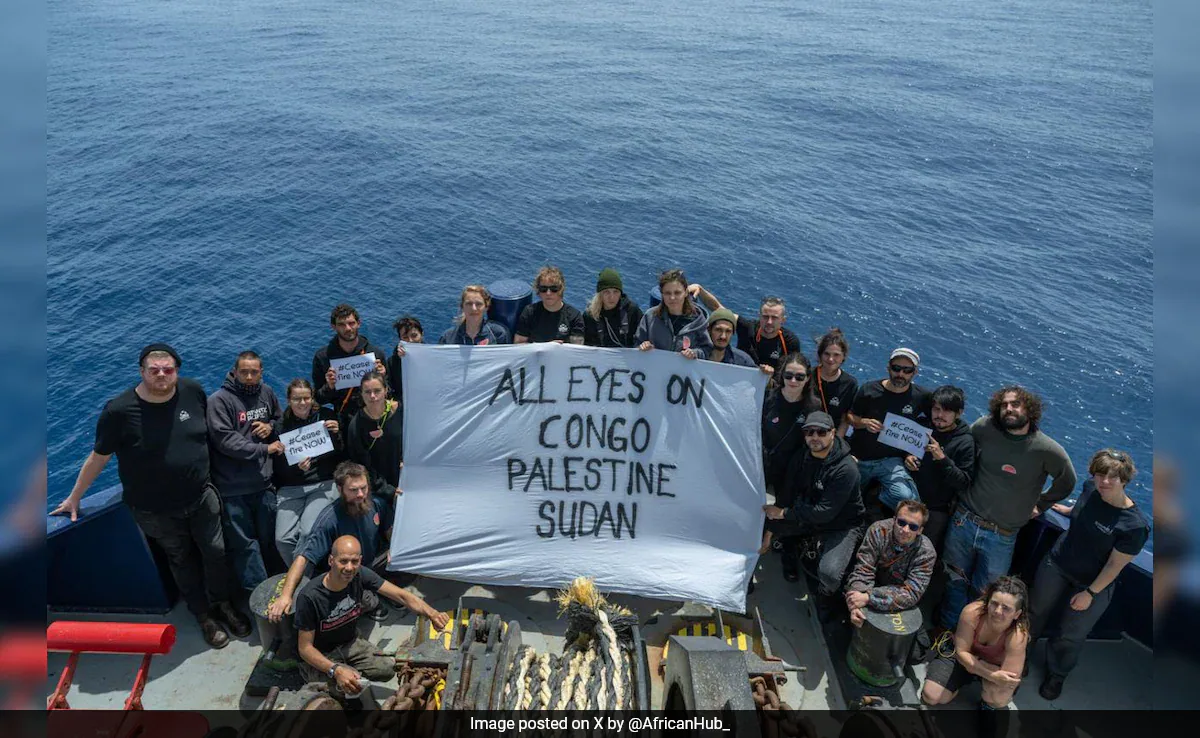
As social media gathers momentum to address the ongoing humanitarian crisis in Palestine, an AI generated image of Rafah titled #alleyesonrafah has been doing the rounds aiming to highlight the increasing death toll in the refugee habitation due to Israeli airstrikes as part of the Israel Palestine War. This image has been shared over 37 million times in less than 24 hours alone, according to NBC news, signifying an increased awareness about the issue among netizens. This renewed interest and curiosity has spilled onto other humanitarian crises across the globe that have gone unnoticed for several years. One of these crises is the violence in Congo, creating the parallel of #alleyesoncongo. Since 1996 over six million people have been killed in Congo and more than six million people remain internally displaced.
Brief History of Congo
The Democratic Republic of Congo is the second largest African nation endowed with exceptional natural resources including copper, diamonds, tantalum, tin, gold and about 70% of the world’s cobalt. These resources however, have resulted in more exploitation than wealth for the local Congolese people. The country has been engulfed by a deadly and decade long conflict caused by a multitude of deep seated factors exacerbated by a desire to control the country’s rich natural resources.
The DRC’s historically tense relations with its neighbors Uganda, Burundi and Rwanda demonstrated through the two Congo Wars in the region have been major catalysts in the domestic instability. Even though peace accords have been signed they have brought no change, forcing thousands of protestors in the DRC to compel their government to cut ties with the neighbors. Most of the proxy wars and violent exploitation takes place in the resource rich regions of the country such as Ituri and North and South Kivu. Many western countries and their nationals have engaged in exploitation. Moreover, over 140 armed groups, most notably the M23 and the Allied Democratic Forces (ADF), in the nation also fuel the crisis provoked by ethnic divisions in a country that is home to over 200 tribes.
Humanitarian Impact
These vulnerable locals are facing one of the worst humanitarian crises in the world with their freedom of expression, assembly and association being strictly curtailed. It is the country most severely struck by malnutrition, at least one among four Congolese people suffers malnutrition. The young population is constantly exposed to violent extremism, forced recruitment and abuse. The perpetrators of violence constantly use sexual abuse as a weapon of war. More than 38,000 cases of sexual violence have been reported in the Nord-Kivu province in the first half of 2023 alone, according to the UNICEF. Unlawful attacks and killings are commonplace and the right to truth and justice is repeatedly violated through arbitrary detention and unfair trials. These are a few of the reported and observed human right violations, forming a minority of the torment that the Congolese people have to suffer on a daily basis.
Conclusion
The Democratic Republic of Congo is the textbook example of a ‘resource curse.’ Today it stands at crossroads between challenges and opportunities, as its present stands marred with violence and conflict. The recent social media trends have brought much needed attention to this long ongoing crisis. However, this attention must not prove to be short-lived and futile. By understanding the complexities of its circumstances and with sustained international pressure and comprehensive strategies, we can grant the DRC a prosperous and stable future that it rightfully deserves.